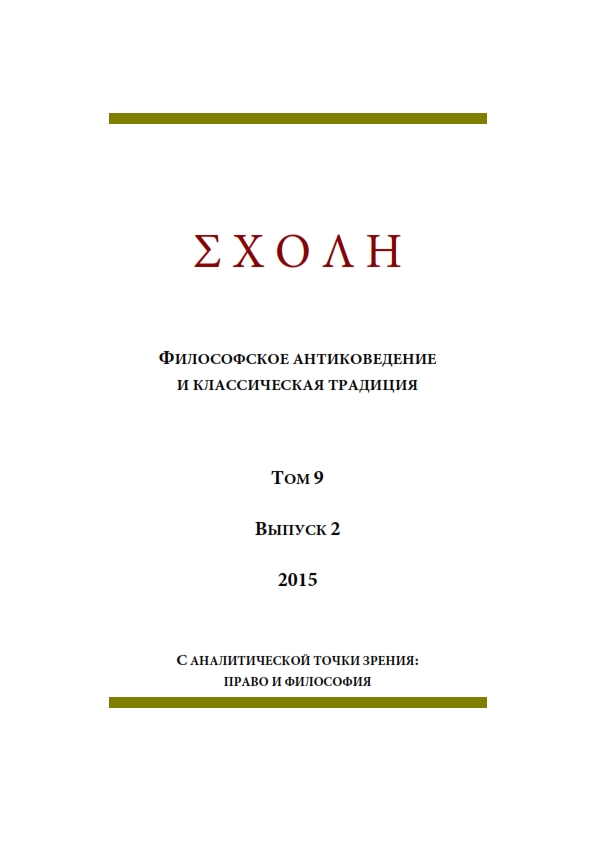ДВЕ ИНТЕРПРЕТАЦИИ ПРОБЛЕМЫ ЛОГИЧЕСКОГО ДЕТЕРМИНИЗМА У АРИСТОТЕЛЯ
TWO INTERPRETATIONS OF THE PROBLEM OF LOGICAL DETERMINISM IN ARISTOTLE
Author(s): Evgeny BorisovSubject(s): Logic, Ancient Philosphy, Analytic Philosophy, Philosophy of Language
Published by: Новосибирский государственный университет
Keywords: logical determinism; truth; bivalence; diachronic modality; Aristotle; Łukasiewicz; von Wright;
Summary/Abstract: In De Interpretatione 9 (19а7–19b4), Aristotle discusses the problem of the logical determinism. In analytic philosophy, this fragment is interpreted by means of the modern logic. There are, basically, two approaches in interpreting it. Proponents of one of them claim that Aristotle’s discussion of the problem ends in restricting the principle of bivalence. Proponents of another one argue that Aristotle intends to show that the deterministic argument is not valid and does not demand any revision of logical principles. Interpretations by Łukasiewicz and von Wright, representing these approaches, are analyzed in the present paper. The main differences between Łukasiewicz’s and von Wright’s ways of exposing and rebutting the deterministic argument are explicated. Using an argument of Fine, it is shown that von Wright’s interpretation is preferable.
Journal: ΣΧΟΛΗ. Философское антиковедение и классическая традиция
- Issue Year: IX/2015
- Issue No: 2
- Page Range: 253-259
- Page Count: 7
- Language: Russian

